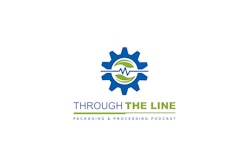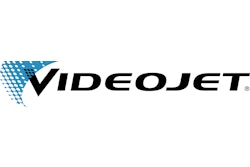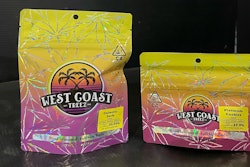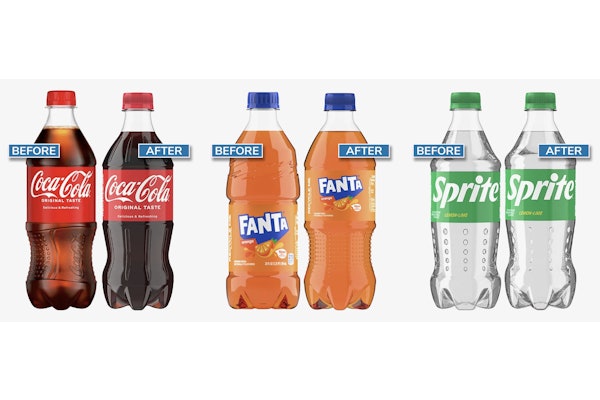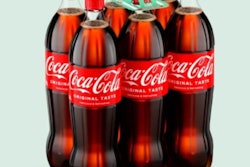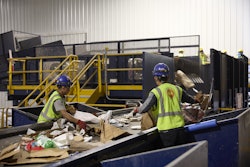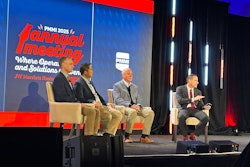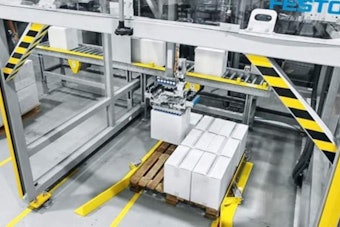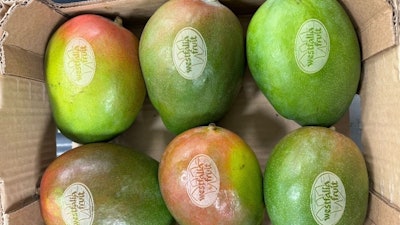
Westfalia Fruit, a multinational supplier of avocados, mangos, and other fresh produce, launched a new process of laser etching codes and branding on avocados and mangos. Driven by its Netherlands-based operations, this initiative eliminates the need for applying plastic price look-up (PLU) stickers to individual mangos. After testing and a trial in Austria, the uniquely laser etched mangos are now available to European consumers.
“Since joining Westfalia, my focus has been on improving collaboration and efficiency. The introduction of laser etching, which is almost like a tattoo on the mango, has been an exciting project. Not only does it make the fruit stand out in-store, but it also has the potential to save up to 10 million plastic stickers a year,” Mathijs Benard, head of operations, Central Europe, as Westfalia. “What we can laser on the fruit is only limited by our imagination and customer needs. Currently, we are etching the fruit origin, customer branding, and product reference.”
The original objective was to reduce plastic usage while maintaining the quality of the fruit. As the project progressed, Benard realized Westfalia could be creative with the information laser etched onto the fruit. Instead of just functional details like origin/provenance, harvest date, and product description, the company saw an opportunity to add health-related, or even seasonal messages to promote the mangos on the shelf.
The machine functions like a belt passing through a black box or safety cage, which acts as a tunnel. A Videojet laser is positioned above the tunnel, where it marks the fruit already placed in their cases. The process is CE-certified and equipped with safety measures, such as scanning the cases first to detect the position of the fruit. This ensures the laser only activates once the fruits’ positions within the case are validated. Additionally, the laser only runs when the tunnel is closed.
“The line speed of the PLU-sticker machine and the laser labelling machine is comparable. The speed of the lasering depends on several factors, such as the number of fruits in a box, and the complexity of the message you want to print. For example, a box containing six mangos with a standard print of logo and text can run 800 cases an hour. If you are using smaller fruit with more in a box and standard print the fruit lasered per hour increases. A complex logo or print may slow the line speed down by around 20%,” Benard says. “The added benefit of the laser technique is that there is no need to replace label rolls or cassettes. Additionally, it is less affected by environmental factors. For example, PLU stickers don’t always adhere well to wet or moist fruit, which can cause the labels to fall off, a problem avoided with the laser system.”
Mangos’ shelf life remains unaffected by the process, according to the company. The laser only impacts a small portion of the outer mango skin, leaving enough depth to protect the fruit. Westfalia conducted thorough trials, like a pilot in Austria, before supplying consumers more widely, to ensure that both shelf life and taste were preserved.
“As long as the laser machine is properly configured (e.g., laser intensity and line speed), laser etching mangoes and avocados does not impact their shelf life,” Benard adds of the process.
Numbers, letters, and simple graphics can be easily laser etched by this process. With the technology for laser etched barcodes is still evolving, Westfalia is not yet fully satisfied with its accuracy for easy scanning at checkout. However, the company are working on developing a new laser to improve the precision of laser etching 2D codes.
Due to the positioning of the laser above the fruit, only the upper side of the fruit in the box can be laser etched in this specific process, and the flatter the print area, the better the result.
Building on earlier success with avocados
Earlier in 2024, Westfalia had already introduced laser etching on avocados in the U.K., which the company says has resulted in “standout presentation on the shelf and a significant reduction in PLU stickers.” Similar to the mango process, the high-powered lasers remove a tiny section of the top layer of avocado skin etching a design on the fruit as directed by a computer program. In the timespan of one-third of a second, the process leaves a laser etched mark, or tattoo, of any desired batch, date or code information. This could include the size or variety of the fruit, or other important information for the consumer. Avacados and mangos work, but not every fruit and vegetable will be subject to laser etching.
“For the laser to be effective, we require a distinct color contrast and, ideally, a smooth surface. Our current focus is on avocado and mango, but the same technique can be applied to a variety of other fruits such as citrus and squash,” Benard says. “This is not part of our scope at the moment, but it could be in the future.” With the technology for laser etched barcodes is still evolving, Westfalia is not yet fully satisfied with its accuracy for easy scanning at checkout. However, the company are working on developing a new laser to improve the precision of laser etching 2D codes.
With the technology for laser etched barcodes is still evolving, Westfalia is not yet fully satisfied with its accuracy for easy scanning at checkout. However, the company are working on developing a new laser to improve the precision of laser etching 2D codes.
Adds Andrew Mitchell, head of innovation at Westfalia Fruit: “The laser procedure occurs whilst the avocados are in the final trays after ripening, making it very efficient, as the avocados ripen the skin gets darker and the color difference becomes even better. You get a very clear visual of the image that has been laser etched onto the fruit. The current small plastic (PLU) stickers with glue backing that are attached to individual avocados are not recyclable. Work is being carried out to develop more eco-friendly versions, but these involve significantly higher costs; therefore, we challenged ourselves to explore more feasible alternatives. Finding a suitable alternative would amount to a considerable reduction of plastic in the supply chain. This aligns with our and our customer’s sustainability goals."
Now that the concept has been proven commercially with avocados and mangos, Westfalia believes that more consumers in different geographies will realize the benefits and incorporate the laser etching into their processes.
“We really believe this approach is something that's just as engaging and effective as stickers but with packaging and efficiency savings as well,” Mitchell says. “The technology has come to a point where it’s caught up with the ambitions and needs of the industry. With microchips and the way that lasers are now produced, the investment now required is more viable. The trials we have conducted mean that we know the speed and exact number of lasers we need to ensure optimum production whilst making sure every single avocado has the right kind of information on it. This really is one of the technologies of the future for sustainability developed by Westfalia and its partners.”

